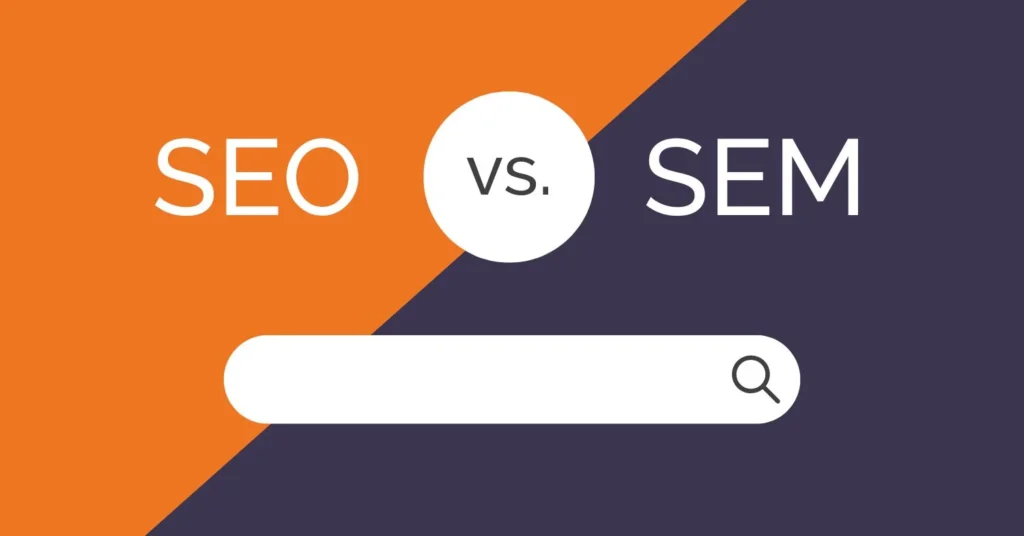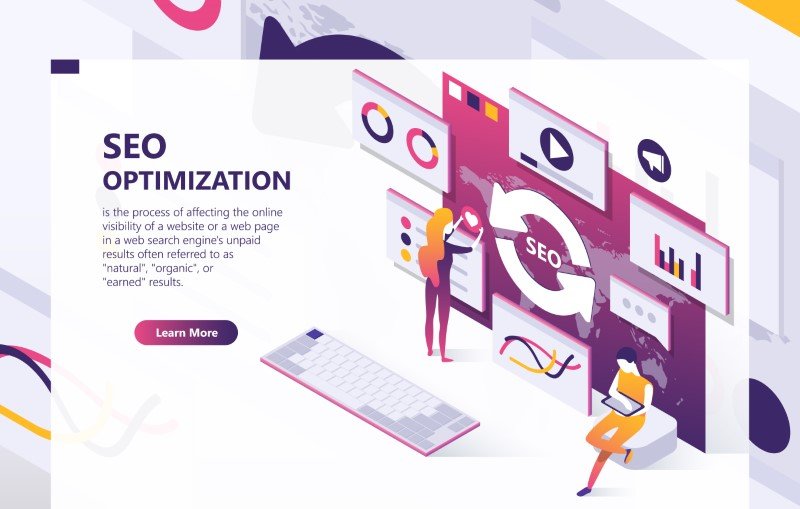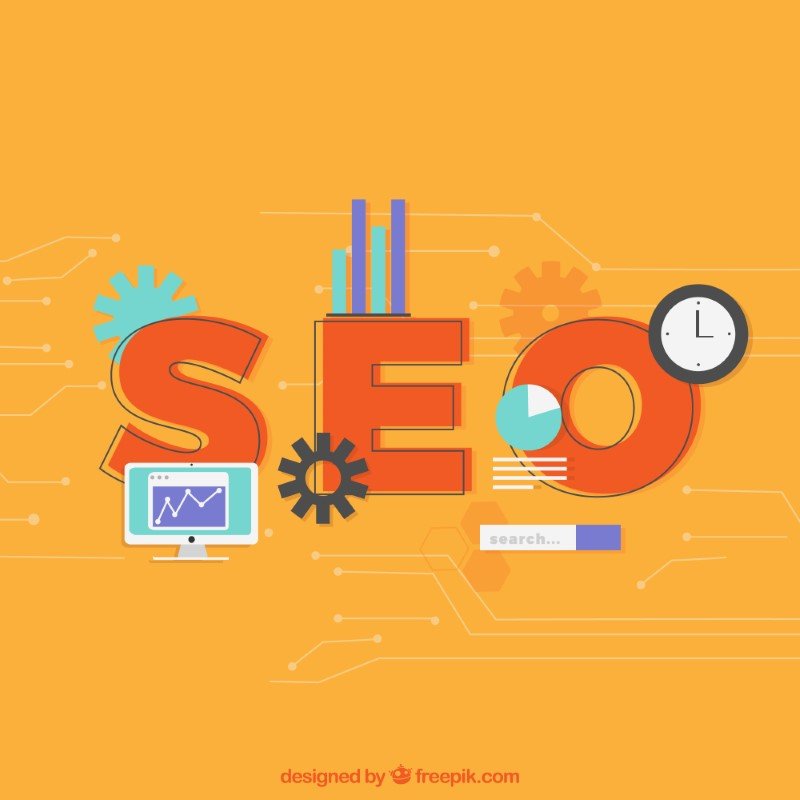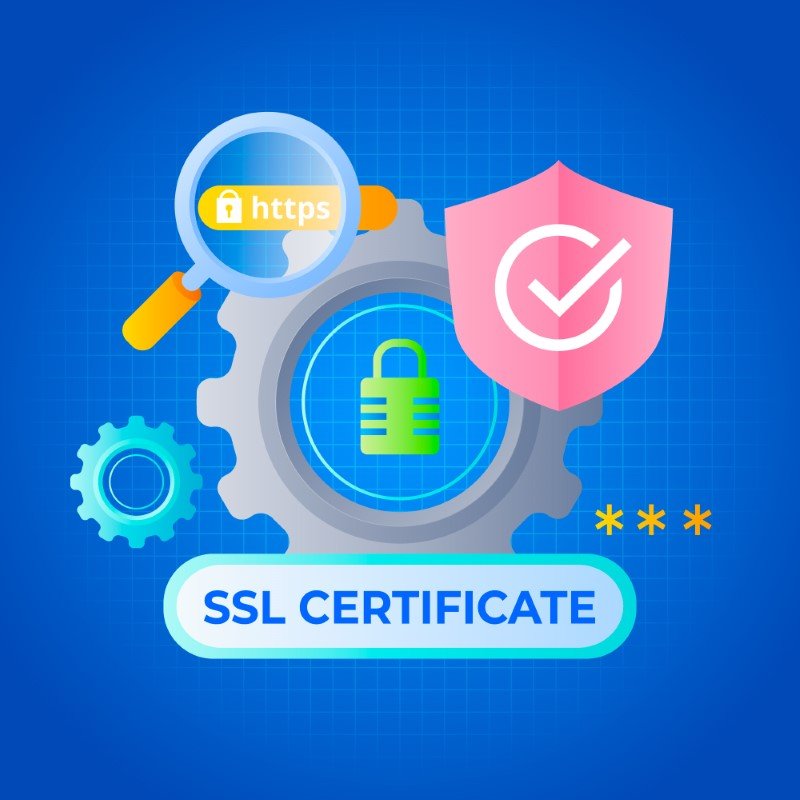Are you debating the merits of SEM vs SEO for enhancing your small business’s online visibility? While both strategies aim to boost your presence on search engines, understanding the difference between SEO and SEM is crucial as they employ distinct approaches.[2]SEO enhances your website’s organic (unpaid) search rankings, whereas SEM leverages pay-per-click (PPC) advertising to secure a top spot in search results, embodying key aspects of SEO and SEM services.[1] [4].
Deciding between SEO vs SEM for your small business hinges on your objectives and budget. SEO, known for its long-term, cost-effective growth, may take time to show results, highlighting the pros and cons of SEO marketing.[1]Conversely, SEM offers immediate visibility through paid ads, though it necessitates a continuous financial commitment, making PPC and paid traffic integral components.[2] [1]A synergistic SEO and SEM strategy, understanding the SEO and SEM difference, can propel businesses forward, combining the power of both organic and paid search marketing.[2] [1].

Table of Contents
Benefits of SEO for Small Businesses
With 51% of website traffic originating from organic search results, primarily on Google, it underscores the importance of search intent and search volume in driving traffic.[5]To attract organic traffic to your business without resorting to paid search, a robust content strategy and content optimization are essential for high-quality, fresh content and high domain authority.[5].
Increased organic traffic
Blogging stands out as a cost-effective and potent method for driving organic traffic to your small business website, aligning with inbound marketing and content strategy practices.[5]Achieving first-page visibility on search engines requires superior content quality, a strong backlink profile, and higher domain authority than your competitors, emphasizing the need for competitor analysis and keyword competition insights.[5]Without sufficient site authority, even exceptional content may remain unnoticed, highlighting the significance of link building and off-page optimization in gaining visibility.[5]If you create high-quality content that consistently solves consumers’ problems, build domain authority with high volume and high-quality backlinks, and excel in on-page optimization, you’ll begin to see a growth in organic traffic to your small business website. This growth is further supported by technical SEO and overall website optimization efforts, ensuring a seamless user experience.[5].
Brand credibility and trust
A strong SEO strategy elevates your brand’s search visibility, marking it as trustworthy in the eyes of Google and other search engines.[7]It’s Google’s job to answer every query with the most accurate, up-to-date, and relevant information possible. Achieving first-page SERP rankings is a gradual process because Google takes time to recognize your brand’s credibility and trustworthiness. Once it does, it may feature your pages in SERP features or featured snippets, presenting your solutions to its users.[7]By using SEO to enhance your brand’s overall search visibility, you inherently build foundational trust with your audience, simply by making them aware of your existence.[7].
Cost-effective promotion
SEO is an organic strategy. This means that you do not have to (or even can’t) pay Google to place your site in the first results. Gaining visibility and clicks is free.[8]Yes, SEO is cost-effective if you implement the right strategies. For small business marketing, choosing the right digital marketing partner can make all the difference.[9]Organic search drives more than half of all web traffic, and SEO helps you tap into this vast search volume, bringing qualified leads to your website without breaking the bank. It’s all about aligning with search intent to capture the right traffic.[9].
Targeted audience reach
Ranking a website with low domain authority in a competitive market is a challenge many small businesses face, especially when dealing with keyword competition.[6]Websites with low DA operating in a competitive market can initially focus on clusters with medium keyword difficulty to start building niche authority, effectively navigating through keyword competition.[6]For search traffic to truly benefit your business, it needs to originate from users who are likely to become customers. Through diligent keyword research, SEO enables you to attract high-quality leads to your site, aligning perfectly with search intent.[9].
Enhanced user experience
Integrating SEO into your CX strategy can improve organic visibility and rankings. But don’t let it overshadow user-centric design.[14]. Prioritize creating intuitive, user-friendly interfaces that captivate and retain visitors [14]. Linking strategies play a crucial role in SEO and user experience [14]Investing in UX design can provide your small business with numerous benefits, such as increased user satisfaction, improved user retention and loyalty, higher conversion rates, and enhanced SEO performance.[13].
Advantages of SEM for Small Businesses
A strong SEM strategy, leveraging PPC ad campaigns, will provide your business with leads or sales at a lower cost than traditional marketing due to the favorable pay-per-click method you are only charged when someone clicks on or engages with your advertisement.[23]SEM is the quickest way to generate a flood of warm leads for your business through online mode, especially beneficial for sem for small business, search engine marketing for small business, small business search engine marketing, and local business search engine marketing.[24].
Immediate results
SEM puts you in the fast lane, showcasing your business on search engine results pages (SERPs) in no time, driving instant traffic your way and significantly boosting your search visibility.[15] [20]Within moments of setting up your SEM campaign, leveraging PPC ad campaigns, your advertisements can appear at the top of search engine results pages (SERPs) for chosen keywords.[16].
Audience targeting capabilities
You have complete control over targeting your audience with results in a unique, customizable experience for each buyer persona or product line.[23]. SEMs are like intelligent missiles, zeroing in on the perfect target [15] [18]SEM’s strategic power lies in its unparalleled ability to hone in on the precise audience segments most aligned with your product or service offerings, enhanced by semantic analysis and semantic keywords.[16].
Valuable data insights
With SEM’s slick analytics, powered by SEO tools, you’re not shooting in the dark. Track your campaign’s wins, tweak spending, and watch your ROI boom.[15] [18]This data-driven approach, empowered by SEO tools, enables business owners to make informed decisions, optimizing their campaigns for maximum efficiency and profitability.[16].
Mobile user targeting
SEM is like having the home-field advantage. Your product-based ads get prime real estate where users are already shopping, making it crucial to optimize your landing pages for the best user experience.[15] [18]Make sure your ads aren’t just friendly but super cozy with mobile users. That’s where the action’s at these days.[15].
Brand awareness and lead generation
It helps in generating brand awareness on search engines [24]. It generates revenue more fastly than any other strategy [24]. It takes your product and service to the target audience through optimized ads [24].
Factors to Consider When Choosing SEO or SEM
When deciding between SEO and SEM for your small business, there are several key factors to consider:
Budget constraints
Small businesses often have limited marketing budgets. SEO can be more cost-effective in the long run, serving as a cornerstone of digital marketing strategies, while SEM requires a consistent budget for paid advertising, making it a vital part of small business marketing.[25] [29]If you lack a significant marketing budget, focusing on SEO is preferable, as it can yield long-term benefits without quickly depleting funds like PPC ads.[30].
Long-term vs short-term goals
SEO is a long-term strategy that takes time to build momentum and see results, typically 6-12 months. While not a short-term strategy, its benefits are substantial over time.[28] [30]If you’re looking for sustained organic traffic growth over time, then investing in SEO is likely the better option.[26]On the other hand, SEM, especially through PPC efforts, can yield almost instantaneous results, acting as a powerful short-term strategy.[30], making it more suitable for immediate traffic and conversions [26]. Consider whether you prioritize higher ROI or quicker ROI [27].
Industry competition
In highly competitive markets with established competitors, SEM can provide an edge by placing your business at the top of search results immediately, making it crucial to partner with the best SEM company for your sem business needs.[25] [29]For SEO, competitors with higher domain authorities and more brand awareness make it difficult to rank on the first page for target keywords. This is where competitor analysis becomes an invaluable tool.[31].
Keyword targeting and performance
Both SEO and SEM leverage relevant keywords, but their approaches differ. SEO success hinges on discovering viable keywords with manageable keyword competition to target through content marketing efforts.[29] [31]With SEM, you’re essentially investing in ad campaigns that appear when users search for specific keywords, allowing for testing and optimization aimed at conversions.[29] [31].
Creating an Effective SEO or SEM Strategy
Here is the content for the section ‘Creating an Effective SEO or SEM Strategy’ with the subheadings integrated:
Goal setting
It’s important to establish specific goals to dominate with SEO and SEM [33]Think about what needs to happen for your business to succeed – for example, driving a certain amount of traffic to your site (if your revenue model is driven by advertising on your site), or getting your cost per conversion below a certain amount (if your revenue model is the sale of a service or product).[33].
Keyword research
You’ll want to spend some time researching your keywords [33]This can take time. Look at your competitors and conduct a thorough competitor analysis to find the keywords they are using.[33]Keyword research helps you discover which keywords are best to target and provides valuable insight into the queries that your target audience is actually searching on Google, factoring in search volume, search intent, and keyword competition.[39].
The more granular your campaign, the better you’ll be able to understand what’s working for you and what’s not working.[33]Keep an open mind about keywords – are there other ways to refer to the same terms that are not quite as popular, but perhaps more affordable for you? Exploring semantic keywords could offer valuable alternatives.[33]
Performance monitoring
Early in our SEM campaign, we were worried about making changes. We kept waiting for more and more data so that we could properly assess whether our campaigns were effective.[33]This was a mistake. In not making early decisions to terminate poorly performing keywords, we wasted money and risked ad fatigue among our target audience.[33].
Ongoing optimization
Over time, SEO should reduce or replace paid advertising spend in order to achieve the target number of leads at the most efficient cost per lead.[38]Could you solely rely on SEM to drive leads? Of course. But, you will be subject to rising ad costs and gradually your cost per lead will increase along with your costs per click, not to mention the potential for ad fatigue and an over-reliance on PPC strategies.[38].
Could you solely rely on SEO to drive leads? You can, but you should be aware that SEO will take time to drive results, and the first few months will not generate much (if any) lead activity.[38].
Conclusion
Both SEO and SEM offer distinct benefits for small businesses aiming to boost their online presence and drive traffic. The choice between them hinges on budget, goals, competition, and keyword strategy.
SEO is cost-effective and ideal for long-term growth, enhancing brand credibility through content optimization, backlinks, and technical improvements. It gradually builds organic traffic and improves user experience and conversion rates.
SEM provides immediate results through PPC campaigns, making it suitable for businesses needing quick visibility and leads, especially in competitive markets. It allows for precise audience targeting, flexible budgeting, and valuable data insights for optimization.
For small businesses, SEO is better for sustained, long-term growth, while SEM is suited for immediate traffic and returns. Often, a combination of both strategies yields the best results. Clear goal-setting, thorough keyword research, and ongoing optimization are key to navigating SEO and SEM successfully.
THE ZOH offers top-notch SEO services tailored to help your business thrive in the digital landscape. Our expertise in content optimization, backlink building, and technical SEO ensures long-term growth and increased organic traffic. Partner with us to enhance your brand’s online presence and achieve your business goals.
FAQs
SEO is often seen as a more budget-friendly option that prepares businesses for long-term success, whereas SEM, though it delivers immediate results, comes with higher costs. Specifically, while pay-per-click (PPC) advertising can quickly drive traffic to a website, this influx typically ceases once the advertising campaign ends.
Absolutely, SEO is a valuable investment for small businesses. It not only helps in building a strong brand identity but also supports sustainable growth and provides a cost-efficient way of generating leads. However, it's crucial to note that SEO is a long-term strategy and may not be the best fit for businesses in need of immediate results.
The key distinction lies in their objectives and approaches to generating web traffic. SEO aims to enhance a website's organic search results to attract traffic, while SEM seeks to increase visibility and traffic through both organic and paid search strategies.
SEO is particularly beneficial for businesses aiming to expand their customer base. Notably, sectors such as Home Service and Repair Companies, Medical Providers, Professional Services, Food, Drink, and Entertainment Services, Legal Services, Real Estate, Pet-Related Services, and Beauty Services can benefit significantly from incorporating local SEO strategies.
References
[1] – https://azbigmedia.com/business/marketing/seo-vs-sem-which-is-more-effective-for-small-businesses/
[2] – https://www.legalzoom.com/articles/digital-marketing-seo-vs-sem-and-why-your-business-needs-both
[3] – https://www.techtarget.com/searchcontentmanagement/answer/SEO-vs-SEM-Whats-the-difference
[4] – https://backlinko.com/hub/seo/seo-vs-sem
[5] – https://www.startupwind.com/seo-strategy-for-your-small-business.html
[6] – https://surferseo.com/blog/small-business-agency-seo-case-study/
[7] – https://sureoak.com/insights/9-ways-to-boost-brand-awareness-and-credibility-with-seo
[8] – https://rockcontent.com/blog/seo-brand-awareness/
[9] – https://www.webfx.com/blog/seo/is-seo-cost-effective/
[10] – https://www.quora.com/How-much-does-SEO-for-a-small-business-cost-and-is-it-affordable
[11] – https://www.linkedin.com/pulse/local-seo-strategies-small-businesses-viserx-qvlic
[12] – https://www.needmomentum.com/seo-strategies-for-small-business-owners/
[13] – https://onceinteractive.com/blog/user-experience-ux-design-tips-to-enhance-your-small-business-website/
[14] – https://searchengineland.com/seo-tips-elevate-user-experience-437949
[15] – https://majorscale.ai/sem-for-small-businesses/
[16] – https://www.bestmarketing.com.sg/blog/search-engine-marketing/amp/
[17] – https://www.linkedin.com/pulse/importance-audience-targeting-sem-shannon-d-cunha
[18] – https://majorscale.ai/sem-for-small-businesses/
[19] – https://allaround.digital/blog/5-benefits-sem-small-business/
[20] – https://majorscale.ai/sem-for-small-businesses/
[21] – https://www.four15digital.com/search-engine-marketing/how-to-use-sem-for-a-small-scale-business-in-a-localized-area/
[22] – https://majorscale.ai/sem-for-small-businesses/
[23] – https://pyxl.com/blog/how-to-leverage-search-engine-marketing-to-increase-leads-brand-awareness/
[24] – https://zavops.com/blogs/how-sem-is-a-more-effective-way-for-lead-generation/
[25] – https://redmoxy.com/seo-vs-sem-and-where-to-place-your-budget/
[26] – https://www.linkedin.com/pulse/seo-vs-sem-which-better-your-business-dopingercom
[27] – https://azbigmedia.com/business/marketing/seo-vs-sem-which-is-more-effective-for-small-businesses/
[28] – https://www.quora.com/Which-is-better-for-a-small-business-SEO-or-SEM
[29] – https://www.growthmachine.com/blog/seo-vs-sem
[30] – https://nogood.io/2023/07/31/seo-vs-sem/
[31] – https://markitors.com/seo-vs-sem/
[32] – https://myeffectivemedia.com/seo-vs-sem-and-why-it-matters-for-small-businesses/
[33] – https://www.crowdspring.com/blog/10-practical-small-business-seo-and-sem-marketing-tips/
[34] – https://www.powermarketinginternational.com/blog/seo-or-sem-for-business
[35] – https://blog.hubspot.com/marketing/how-to-do-keyword-research-ht
[36] – https://mailchimp.com/resources/how-to-do-keyword-research/
[37] – https://myeffectivemedia.com/seo-vs-sem-and-why-it-matters-for-small-businesses/
[38] – https://markitors.com/seo-vs-sem/
[39] – https://nogood.io/2023/07/31/seo-vs-sem/
[40] – https://medium.com/@101writer/how-to-drive-more-traffic-to-your-website-seo-vs-sem-3ac6bb447061
Get Your Website Free Audit Report Today!
Newsletter
Latest Post

SEO Optimization Companies: Best Picks for 2024

Web Application Basics: Everything You Need to Know


Small Business Bookkeeping: Essential Tips for 2024


